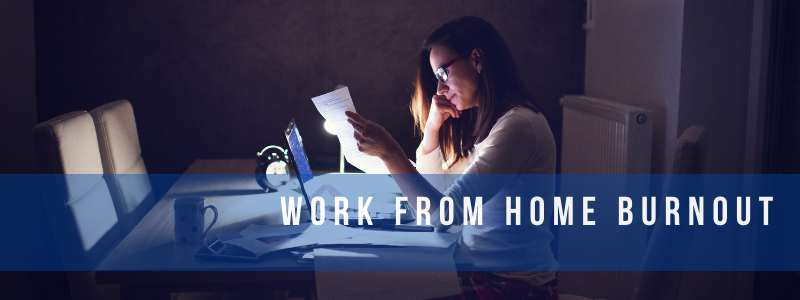
“My candle burns at both ends/it will not last the night.” —Edna St. Vincent Millay
Burnout resists simple definition because it affects so many aspects of an individual’s life. In their book, Beyond Burnout, authors David Welch, Donald Medeiros and George Tate, describe burnout as a condition that affects us physically, intellectually, emotionally, socially and spiritually.
One of the first physical symptoms of burnout is fatigue. Intellectually, there may be a loss of creativity and sharpness in problem-solving; cynicism may replace enthusiasm. Emotionally, the loss of dreams and expectations can result in feelings of helplessness and depression. In the social realm, isolation overtakes feelings of involvement, and spiritually, the person experiencing burnout may feel a lack of meaning or purposelessness to her life.
Statistics on burnout and overwhelm in the workplace are on the rise, especially with all the changes introduced from the pandemic. Working from home is the new norm and managing all the aspects of our lives under the same roof can complicate the situation. This article takes you through the warning signs and provides a framework to address the burnout on eight fronts.
First, recognize the warning signs:
- feelings of frustration and never being caught up
- a feeling of lack of control about how to do your job or what goes on in the workplace
- emotional outbursts
- withdrawal and isolation
- the dread of going to work
- frequent sickness or health problems
- increased use of alcohol, drugs or food consumption
- a desire to quit (or run away) but a fear of doing so
Taking a few days off or a vacation to Tahiti won’t contain the burnout. Neither will simply leave one job for another. Burnout has more to do with attitudes, work styles, and behavior than it does the specific job situation. In other words, burnout may be primarily an act of self-immolation.
How to Avoid Burnout
Self-management
Take the time to set goals and objectives, review them with others, make sure they’re attainable and clear.
Stress management
Know your own responses to stress and develop a plan to manage it. Exercise, take breaks, eat healthfully, leave work at work, make time for play and rest. Discover what works best for you and your body and practice good self-care habits.
Support systems
Family, friends, co-workers, professional organizations—all these support systems can help in times of stress.
Skill building
Look for challenges and opportunities to learn new skills and participate in activities that use your natural skills, talents and abilities. Rather than becoming stagnant, you’ll be able to grow.
Balance
Seek a balanced and well-structured lifestyle. Avoid boredom. Determine what’s important to you and create a lifestyle that embraces and supports you.
Think positively
Replace negativity with optimistic thinking. Helpless thinking is a major contributor to burnout.
Be creative
Look for a different approach to the same problems or to unpleasant situations. Break free from your everyday routine. Let your workspace express your individuality.
Humor and playfulness
Humor reduces stress, promotes physical healing, is essential for mental health and can add years to your life. No wonder they say humor is the best antidote. Enjoy yourself.
Author’s content used under license, © 2008 Claire Communications
COOL NEW OFFERING
If you or someone you know is experiencing burnout, overwhelm or ongoing challenges with productivity at work, they may be interested in our new coaching program:

Our Productive Days Coaching Program and Course launches today and is geared to those working from home, or struggling to get their work done at the office, or dealing with feelings of burnout, anxiety and overwhelm in their job on a chronic basis. The strategies, skills and support in the program is designed to help with:
- Reset of your work environment to be more engaging
- Power up your thinking and ability to focus
- Get strategical with how you use your time
- Navigate your tasks and projects with more ease
- Deal with struggles around perfectionism, Indecision, overwhelm, and more
If not you, maybe you know someone who might benefit! Please Share! Click here to learn more
UPCOMING EVENTS
Up next with our ADHD Classes:
 Executive Function and ADHD, Saturday 2/20/21 Executive Function and ADHD, Saturday 2/20/21
In this class we explore the connection between executive function skills and ADHD, you will take a baseline assessment to pinpoint which ones are getting in your way, and learn a proven framework for building on your skills to support your success. Participants will create a 7-day challenge goal and receive support from our coaches as they work through the challenge. There is still time to save your seat!
Click here to learn more
Need Individual Support?
Visit our Website to learn more about our coaches.

|